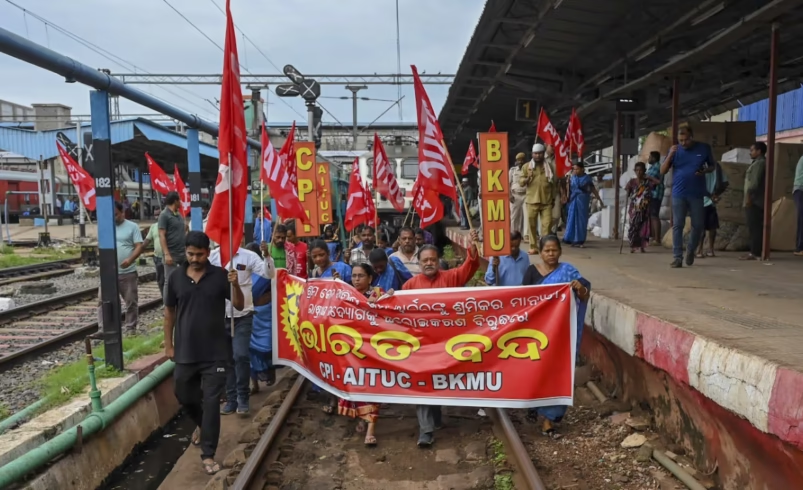Nationwide Bharat Bandh: Trade Unions Protest Government Policies
- July 9, 2025
- 0

Ten central trade unions in India have launched a nationwide strike known as Bharat Bandh, significantly affecting key sectors such as banking, postal services, electricity, mining, and public transportation. This large-scale protest is supported by various agricultural organizations and is aimed at voicing discontent with the government’s current labor and economic policies. The unions argue that these policies disproportionately favor corporate interests over the welfare of workers and the general populace.
The Bharat Bandh has led to widespread disruptions across the country, with many essential services being halted or operating at reduced capacity. In the banking sector, operations have been severely impacted as employees participate in the strike, leading to delays in transactions and other financial services. Similarly, postal services have experienced significant slowdowns, affecting mail delivery and other related functions.
The electricity sector has also seen disruptions, with some areas experiencing power outages due to reduced workforce availability. Mining activities have been curtailed as workers join the protest, impacting production levels and supply chains. Public transportation systems, including buses and trains, are running on limited schedules, causing inconvenience to commuters who rely on these services for their daily travel.
The unions’ demands include a rollback of recent labor reforms that they claim undermine workers’ rights and job security. They are also calling for measures to protect public sector enterprises from privatization and to ensure fair wages and working conditions for all employees. The involvement of agricultural organizations highlights the broader coalition of groups affected by these policies, emphasizing the interconnectedness of labor issues across different sectors.
This strike reflects growing tensions between the government and labor groups, with potential implications for future policy decisions. As the situation unfolds, it remains to be seen how the government will respond to these demands and whether any concessions will be made to address the concerns raised by the unions.